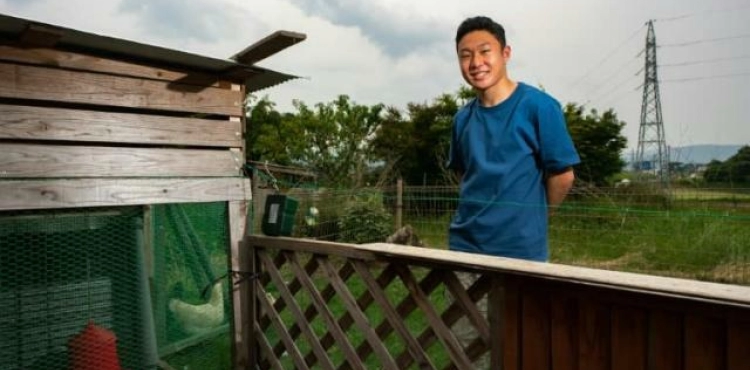From a small blue backpack, Koichi Miyasu takes out carefully folded T-shirts with cartoon characters and white sneakers... that´s all he has left from the period before he was abandoned and deposited in the only "baby box" of its kind. in Japan .
Miyatsu was just a small child when he was left in front of the "baby box" of a Kumamoto hospital in southern Japan, which allows desperate families to leave their children anonymous.
"These are some of the clothes I was wearing when I was left in the incubator," 18-year-old Miatsu told AFP. "They are the oldest memories of my childhood...so I kept them carefully."
This year, Miyatsu became the first person in Japan to publicly address the topic of leaving it in a "baby box", which was first opened in 2007 and was designed based on a German model.
His comments re-ignited controversy over a scheme that supporters have described as a last resort for marginalized women, while opponents have argued that it encourages the abandonment of children.
As for Miatsu, he believes that the "baby box" undoubtedly has its advantages.
The university student says that "the day I was left in front of the incubator marked the beginning of a new chapter in my life," adding that "the credit for what I am today is due to the incubator."
The Jikai Catholic Hospital in Kumamoto launched the program with the aim of providing an alternative for parents who struggle without the ability or desire to move towards organizational solutions such as providing a child for adoption.
Hospital officials assure that the incubator would make the children avoid being attacked or even killed. Over a period of 15 years, the incubator took care of 161 infants and children.
Soon after receiving the babysitter Miyatsu, he was adopted by Yoshimitsu and Midori Miyatsu, who live in rural Kumamoto.
The parents, who had five children, raised more than thirty others and did not hesitate to adopt Miyatsu.
"I thought at the time that an angel had been sent to us," says Yoshimitsu, 65, remembering Miyatsu´s arrival at his home.
The pair have long supported the hospital´s program after realizing the difficult conditions that adopted children go through, including family break-up and delinquency problems, as well as homelessness and unwanted pregnancies.
"On a cold December day, a pregnant woman without money asked us for help... That´s when we realized that there are children who need this kind of place," said Midori, 63.
Miyatsu was among the first children to be placed in the incubator, and he had nothing in his possession to indicate his name, age or birthplace.
"I don´t remember the moment I was placed in front of the nursery...but the picture of the door behind it is engraved in a corner of my memory," he says.
Midori notes that Miyatsu saw a picture showing the sitter in a newspaper about a year after he left the place, adding, "He told us at the time that he was living there, so we realized that he remembered it."
A local official gave Miatsu a name and his age was determined based on the results of a DNA test he was given. His first days of nursing were difficult, as he constantly had nightmares and he constantly resorted to the habit of sucking his fingers.
However, the couple did not hide his past from him, and with the passage of time the impact of the trauma he was exposed to dissipated.
Years later, Miatsu became aware of more information about his origins, including that his mother was killed in a car accident five months after his birth.
He still has a framed photo of her with curly hair similar to Miyatsu´s hair type, expressing the feeling that his mother is guarding him from the sky.
"I want to tell her that I have grown into an 18-year-old and want to live the life that was short for her," he adds.
Every month, Miatsu provides free meals to poor children at a local church, and in the future he wants to work with them, and may in turn become a father to his adopted children.
He hopes that the account of his life´s testimony will be a "step that encourages other people (who are left in the incubator) to speak up and deliver their messages," noting that he has overcome "the turbulent feelings he was feeling" about his life.
"Some of the loopholes that still exist don´t fundamentally change who I am today," he says, adding, "I don´t think my identity should be dominated by the limited first years of my life."
"The life that followed the days of the incubator is much more important than it," he continues.












